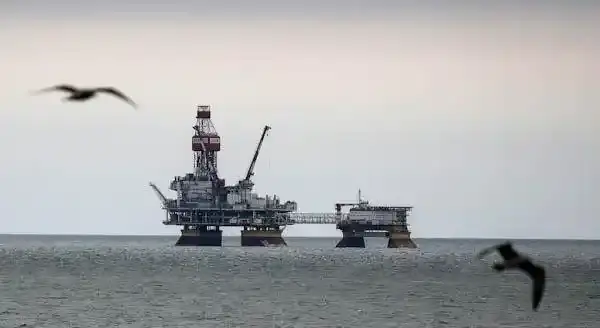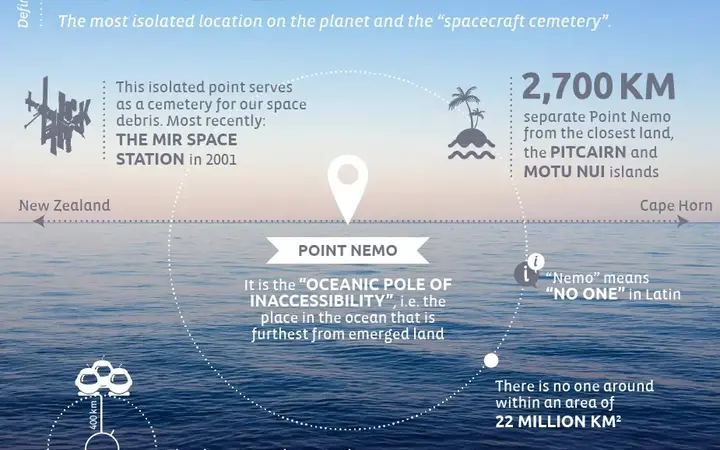Why does the Arab lands have so much oil?
Since the beginning of the twentieth century, specifically in 1908, when an oil field was discovered by chance inside the Arabistan region (Ahwaz) on the Iraqi-Iranian border, since then, the discoveries of oil fields in the Arab lands have continued until the Arab world has the lion's share of fossil fuel production in the world, as the percentage of oil production of Arab countries is approximately 60% of oil production in the whole world.
Show key points
- The Arab world possesses around 60% of the world's oil production and over 25% of natural gas output, making it a global leader in fossil fuel resources.
- A key reason for the abundance of oil in Arab countries lies in their geological history, where ancient biodiversity and ideal conditions transformed buried biomass into massive hydrocarbon reserves.
- The region mainly contains conventional oil, which is easier to extract due to its proximity to the surface and protection by cover rocks, unlike the unconventional, harder-to-access oil found elsewhere.
- ADVERTISEMENT
- Arab conventional oil is diverse in type and quality depending on geological factors and extraction methods, influencing its color, thickness, and usability.
- The Ghawar oil field in Saudi Arabia is the largest conventional oil field globally, producing about 5 million barrels per day and stretching over 256 kilometers.
- In addition to Ghawar, the Safaniya field is the world’s largest offshore oil field, boosting the Kingdom's dominance in oil production.
- As the world shifts towards clean and renewable energy to combat climate change, Arab countries face economic challenges due to their reliance on oil and gas exports.
The matter does not stop at oil only, as the Arab countries also have a significant share of more than 25% of the world's natural gas production.
But the question remains, "Why do Arab lands contain so much oil, perhaps more than we also know?"
Therefore, in this article, we try to shed light on the reasons for the abundance of oil in our Arab countries and not in the rest of the world.
Recommend
Different types of oil

There are many types that you may not have heard of before, including the so-called unconventional oil, which is one of the forms of the presence of oil under the earth's crust in hard-to-reach places, and oil is often leaked on the surface of the earth from these areas and mixes with sand, so it becomes what is known as sandy oil (bitumen) and this type is found more in the reserves of countries such as Canada and Venezuela, and their cold climatic nature may be the reason for the earth's ability to Keep it and store it.
Unlike the climatic nature of the Arab countries, which contain a completely different type of oil, which is conventional oil, and are covered by "cover rocks" that protect the oil from leaking to the surface, which is what happens with unconventional oil, which changes its nature.
Conventional oil also has different types, it does not have a single type, color or thickness, but varies according to the place from which it was extracted and the porosity of the rocks in which it was stored, but also the way it was extracted and repeated, and the temperature and boiling to which it is subjected, directly affect its color and nature.
Oil in the Arab world

The oil in reservoirs and natural wells in the territories of the Arab countries are traditional oil wells whose reservoirs are relatively close to the surface and in a suitable place to extract it easily from under the covering rocks that protect it, and this is what makes its extraction and repetition relatively easy compared to other types that are difficult to extract at the same rate of purity in which it is extracted from Arab lands, and this is what makes Arab lands distinctive and because they also contain the largest wells of conventional oil, as the "Ghawar" field in the region Eastern Province, specifically in Al-Ahsa Governorate in the Kingdom of Saudi Arabia, is the largest conventional oil field in the world and the field extends over a length of 256 km, which is a very large size of an oil field, and this is what makes it the largest in the world in addition to its daily productivity, which is estimated at approximately 5 million barrels.
There is also in the Kingdom of Arabia the largest underwater oil well, the "Safaniya" field, which is about 250 km from Dhahran, and was named by this name because of its proximity to the city of Safaniya, located on the border of the Arabian Gulf, and its productivity exceeds 1 billion barrels per day.
The Arab world contains many other oil fields in countries other than the Kingdom of Saudi Arabia, as Iraq was one of the leading countries in discovering oil in its territory, and the Arab-African countries also have a share of this oil legacy, as in the Libyan Republic, for example.
The availability of oil in large quantities in the Arab Gulf countries is due to the fact that it was in the past a land full of animal and plant biodiversity, and the extinction of these organisms led to an increase in the biomass buried within those lands, and with the high pressure and temperature and the appropriate factors forgetting oil over thousands of years, this biomass wandered into oil and natural gas in huge quantities.
Oil in the Arab world with the trend towards clean energy
Global warming threatens the globe and results in many climate and natural changes, changes that the individual has come to notice closely, and for this reason the world is taking many measures that will reduce the rates of rising global warming, and among those measures is the trend towards the use of clean energy and environmentally friendly fuel sources such as solar energy, wind energy and water instead of fossil fuels such as oil, natural gas and coal, and this is what puts the Arab countries, first of all the Gulf countries, in a difficult position, especially While most of their income is based on the production and export of oil and natural gas, do Arab countries reduce or stop their productivity to protect the environment and the land or not?
![]()
Why you should read every day
Why You Should Read Every Day more- ADVERTISEMENT
![]()
Life lessons that I realized after the age of forty and wished I had learned them at twenty: Is it too late to arrange your life in the forties?
Life Lessons I Realized After I Turned 40 That I Wish I Learned at 20- Is it Too Late to Get Your Life Together in Your 40s more- ADVERTISEMENT
![]()
How to outperform everyone by acting like a CEO
Success isn't accidental—it’s built through CEO-like habits. Think strategically, decide with confidence, build strong networks, and manage time smartly. These executive behaviors shape a mindset that helps you grow, lead, and stand out in your career. Start adopting them now to pave your path to excellence. more- ADVERTISEMENT
![]()
Human population growth: where are we now?
As the global population heads toward 10.5 billion by 2100, challenges like aging populations, food security, and environmental strain grow. While prosperity helps lower fertility, it also increases environmental harm. Addressing climate change, boosting food production sustainably, and shifting to low-carbon energy are key to balancing growth and the planet’s health. more- ADVERTISEMENT
![]()
Do you know why hair becomes white with age and not skin?
White hair can show up early due to genetics, stress, vitamin B12 deficiency, or smoking. While aging is a natural cause, lifestyle and health factors also play a role. Sometimes, treating underlying issues like thyroid problems or vitamin deficiencies may help restore hair color. more- ADVERTISEMENT
![]()
Success Guide - How to discover your passion?
Discovering your passion is a personal journey that brings meaning and joy to life. It’s about finding what excites you, motivates you, and makes you feel alive. With patience, reflection, and trying new experiences, you can uncover what truly inspires you without needing to spend a fortune. more- ADVERTISEMENT
![]()
The Dream of Getting Rich Quick: Stories of Turning Good Fortunes into Millionaires Overnight
Overnight Millionaires: People Who Got Rich Quick more- ADVERTISEMENT
![]()
Integrating AI with Biotechnology – Concerns and Advantages
AI and biotechnology together are changing the game—speeding up drug discovery, improving diagnosis, and creating personalized treatments. They’re also boosting sustainable farming and designing smart materials. While full of promise, there are real concerns about privacy, bias, and job loss that demand careful attention and strict ethical guidelines. more- ADVERTISEMENT
![]()
Nemo Point: the most isolated location on the planet
Point Nemo, the ocean’s most remote spot, lies in the South Pacific, 2,700 km from any land. It’s so isolated that astronauts are often the closest humans. Known as a spacecraft graveyard, it’s also inspired fiction from Jules Verne to Gorillaz’s Plastic Beach album. more- ADVERTISEMENT
![]()
The concept of financial liberalization - how can you achieve it?
The Financial Freedom Concept - How can you achieve it more- ADVERTISEMENT





















